TEQTO
Ferrite Meter, Hardness Tester, Crack Depth Meter & Coating Thickness Gauges
Ferrite Meter, Hardness Tester, Crack Depth Meter & Coating Thickness Gauges
Our ferrite meters are versatile instruments designed for precise measurement of ferrite content in metal welds, rust-inhibiting coatings, and the base metals of austenitic and austenitic-ferritic stainless steels. These tools provide comprehensive analysis with percentage (%) and ferritic number (FN) scales, ensuring accurate assessments across all measurement ranges.
Ideal for use in laboratory and workshop settings, they are essential for quality control in industries such as nuclear and chemical engineering, shipbuilding, and more. A wide range of transducers is available to accommodate various applications, making our ferrite meters a reliable choice for ensuring the integrity of stainless steel weldings and other critical components.
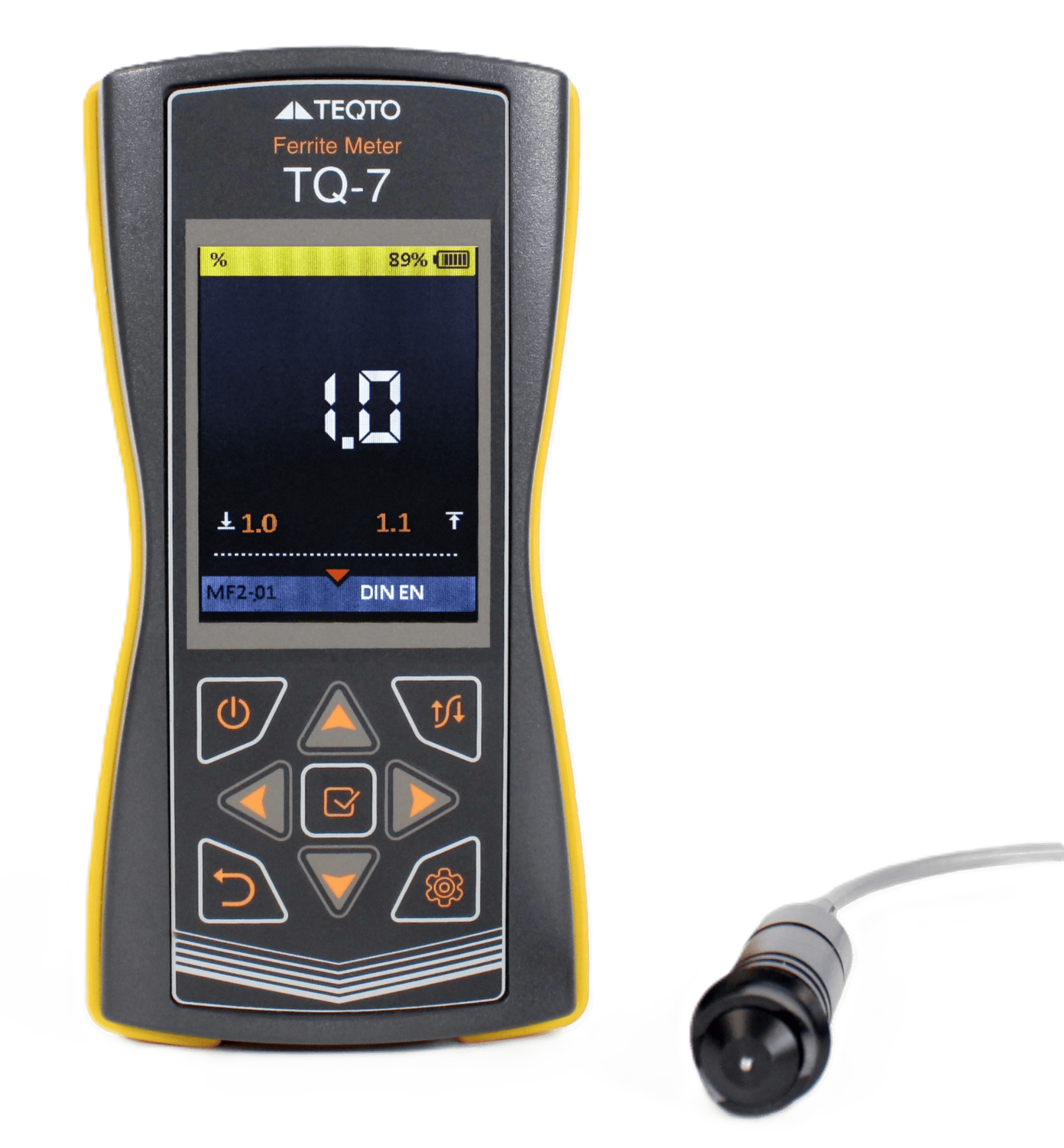
The universal tool designed for local measuring of the ferrite content in metal welds, deposited rust-inhibiting coatings, and in the base metal of workpieces, parts, and finished products made of austenitic and austenitic-ferritic stainless Cr-Ni steels.

Discrete mode
Discrete measurement of ferrite content with displaying of auxiliary information: min/max value, average value, statistics/history.
Continuous mode
Scanning of the test object with indication of the current value of coating thickness as well as displaying the min/max value.
|
Characteristic |
Value |
| Ferrite content measurement range, % | 0,5…20 / 0,5…60 / 0.5….80* |
| FN measurement range | 0,5…100* |
| Basic error | less than 5% |
| Power supply | 2700 mAh batteries (replaceable) or AA batteries |
| Time of continuous operation, h | 8 |
| Display | color TFT LCD 320Х240 |
| Memory capacity | 100 pages x 100 measurements per page |
| Weight, kg | 0,3 |
| Electronic unit dimensions, mm | 36х78х159 |
| TQ2-01 transducer dimensions TQ0.7-01 transducer dimensions | d16х60 d10х63 |
| Operating temperature range, °C | -10…+40 |
| Max magnetization depth (locality) of TQ2-01 / TQ0.7-01 transducer | 3 / 5,5 |
| Transducer type | magnetic induction |
Our catalogue offers three advanced types of hardness testers tailored for various industrial applications. The Leeb method testers provide fast, accurate measurements ideal for large, heavy components, offering ease of use and consistent results. The UCI method testers are perfect for testing small, thin, or complex-shaped parts, delivering precise hardness readings even in hard-to-reach areas.
For comprehensive testing needs, our combined Leeb & UCI method testers integrate the strengths of both techniques, allowing you to switch seamlessly between methods to suit the material and testing conditions. These portable devices are built for durability and precision, making them essential for professionals who need reliable data to ensure product quality and compliance with industry standards.
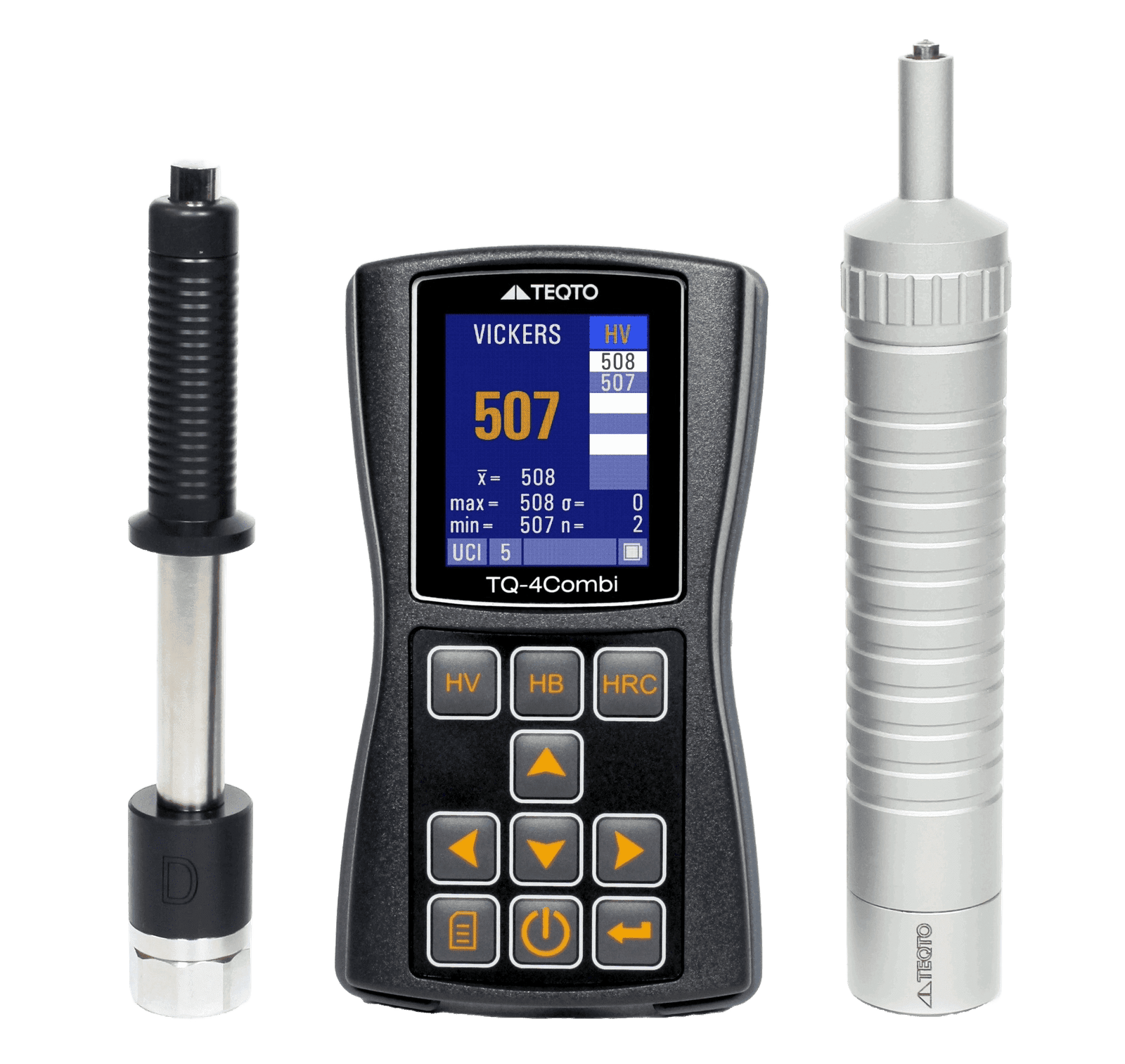
TQ-4Combi combines the advantages of both UCI and Leeb methods for precise control of metals and alloys hardness.
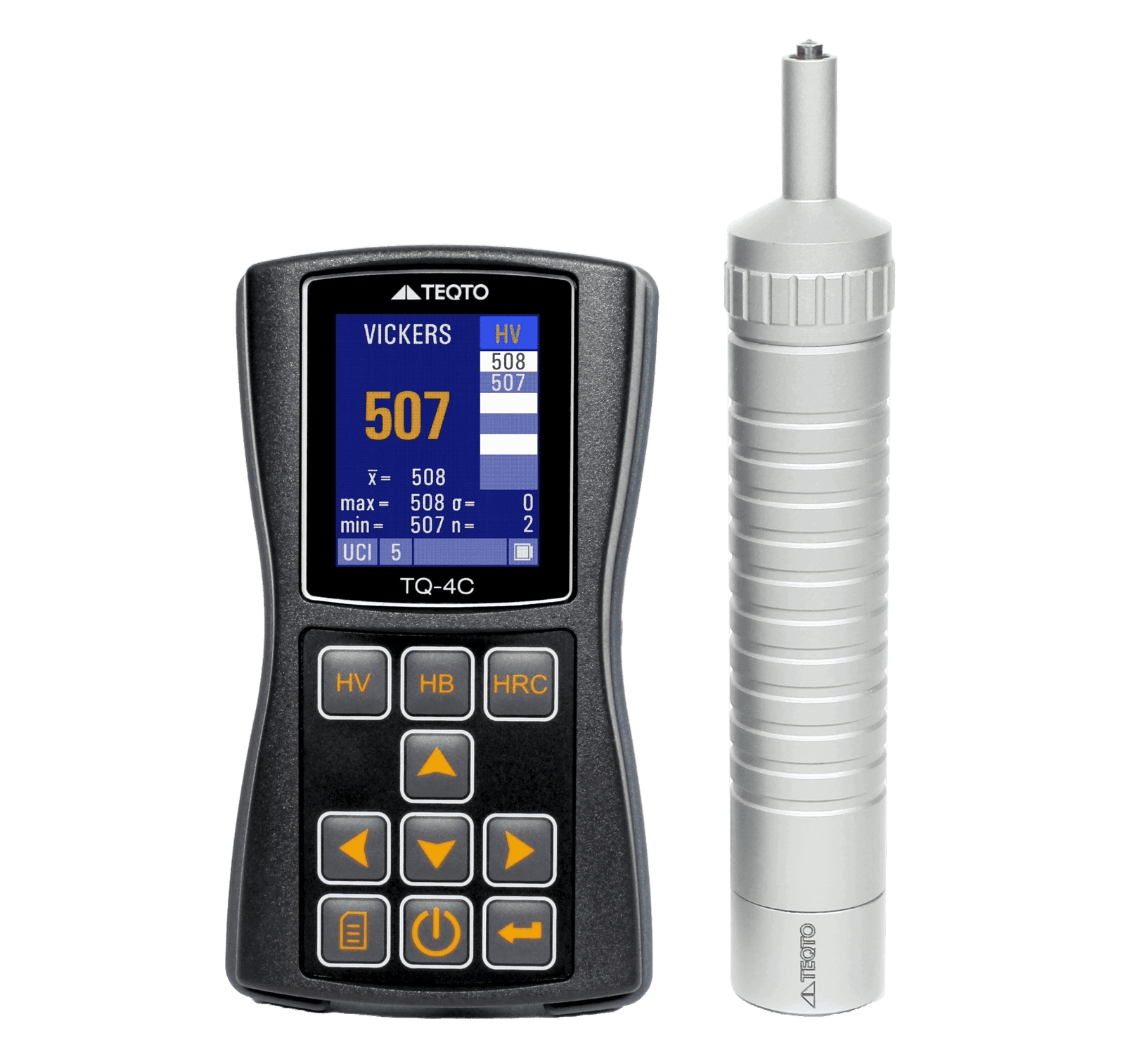
Operating on the Ultrasonic Contact Impedance (UCI) method, this hardness tester is specifically tailored for measuring the hardness of carbon structural steels across fundamental hardness scales such as Brinell (HB), Rockwell (HRC), and Vickers (HV).
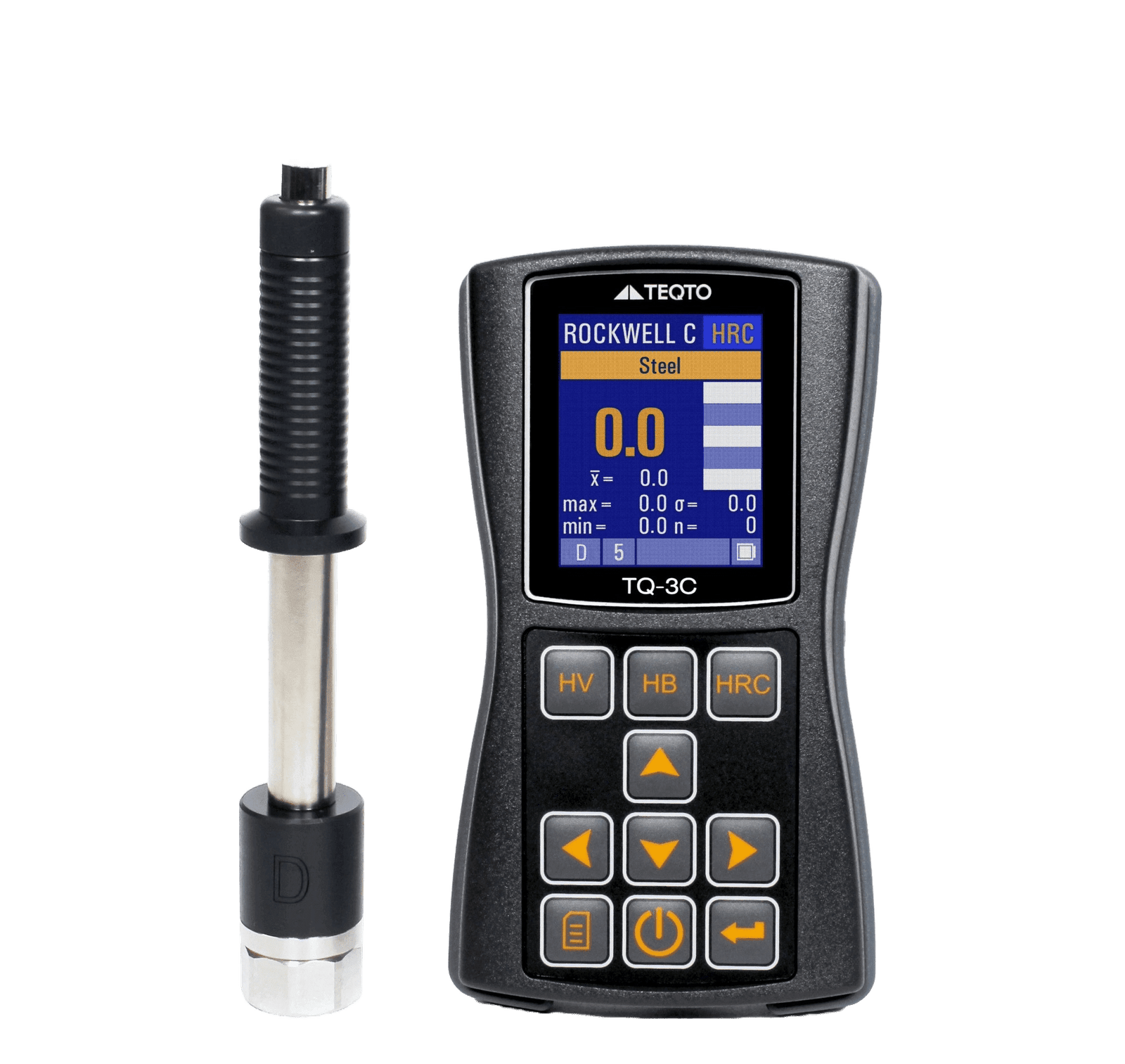
Operating on the Leeb method, this hardness tester provides robust control over the hardness of a wide range of materials, including:
Our comprehensive range of accessories enhances the performance and versatility of our testing equipment. With specialized probes, adapters, and cables, these tools are engineered for high-quality standards, ensuring precise and reliable results across various applications. They extend your equipment’s capabilities and support accurate measurements.
Crafted for durability and ease of use, our accessories are designed to meet diverse testing needs. They deliver consistent results across different materials and conditions, optimizing your testing processes and maintaining the integrity of your equipment.
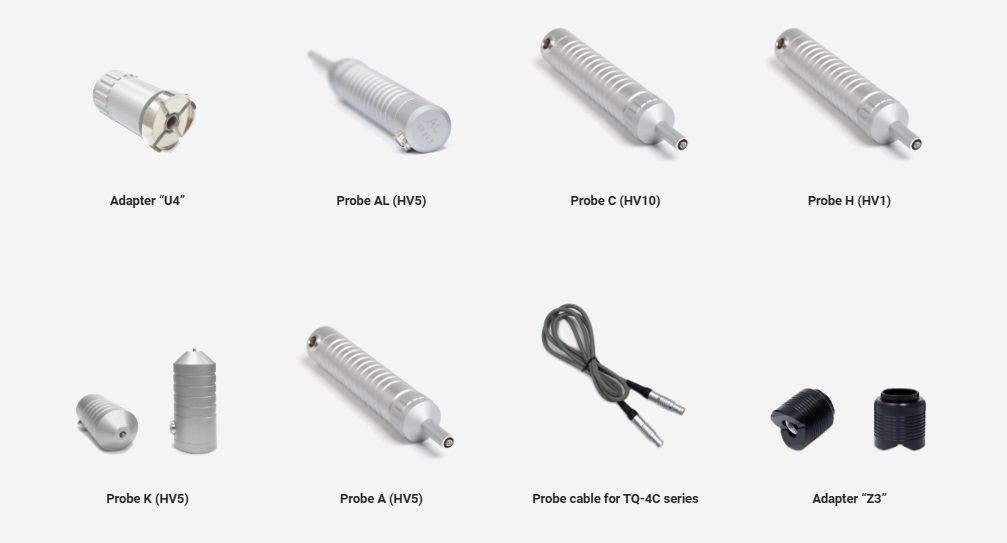
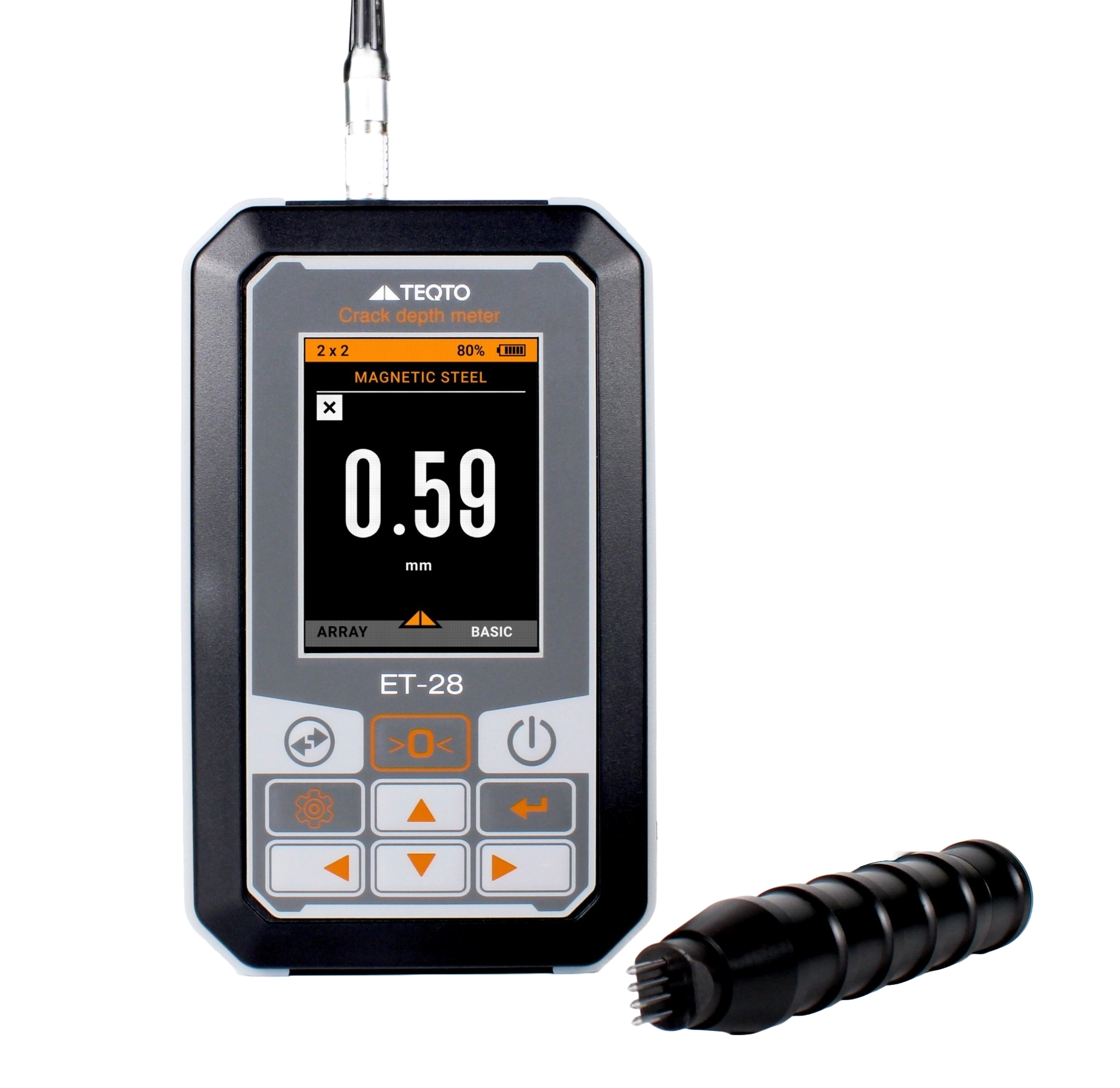
The crack depth meter operates on the principle of AC electro-potential measurement, providing prompt and precise depth testing compared to traditional methods. It works most efficiently in combination with other crack-revealing methods, such as magnetic particle, capillary, or eddy-current testing.
Application
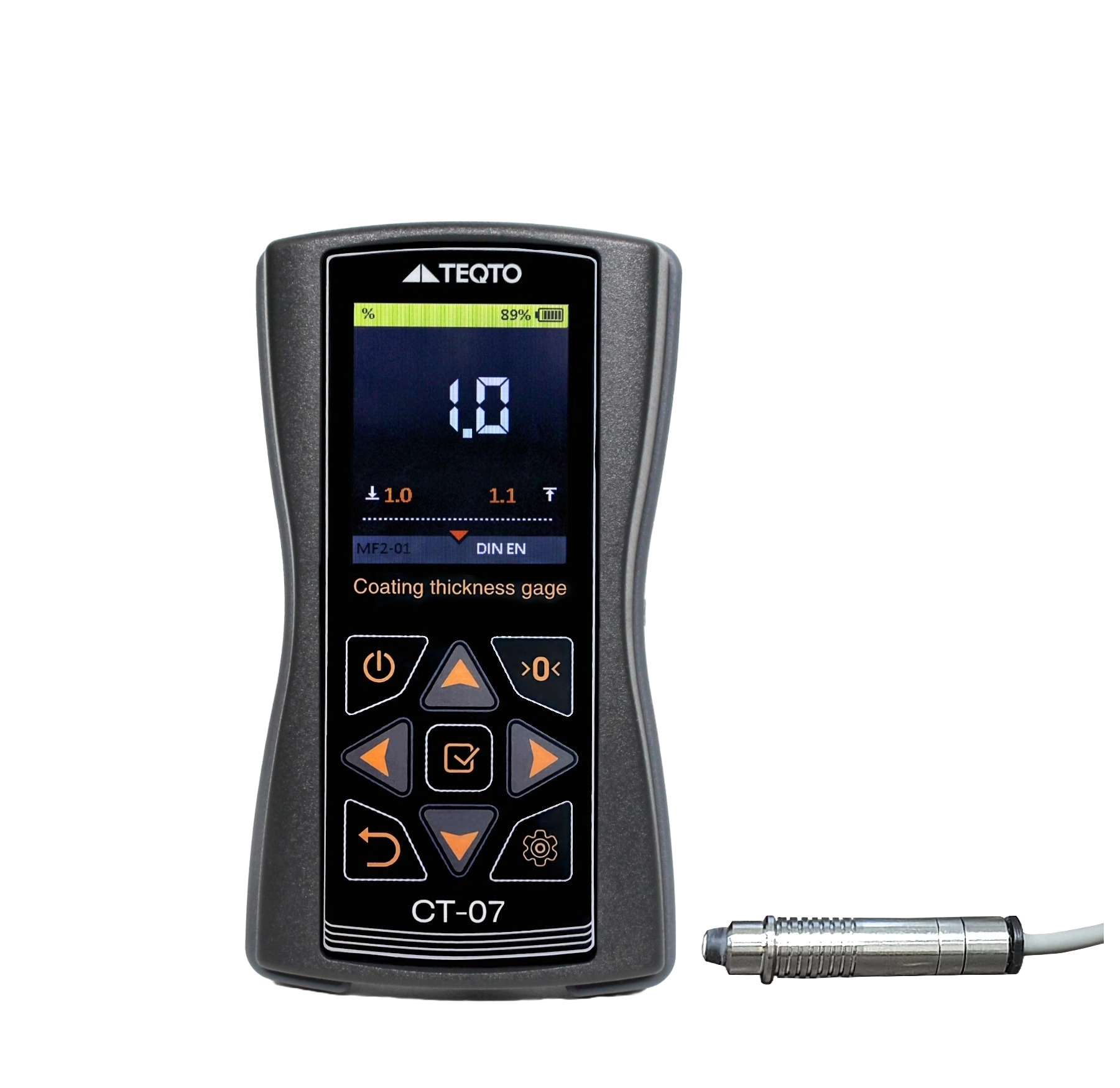
Application